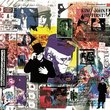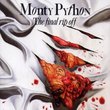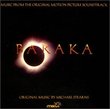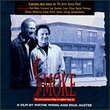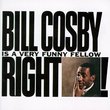| All Artists: Yundi Title: Chopin: Nocturnes Members Wishing: 1 Total Copies: 0 Label: EMI Classics Original Release Date: 1/1/2010 Re-Release Date: 4/20/2010 Genre: Classical Styles: Historical Periods, Classical (c.1770-1830) Number of Discs: 2 SwapaCD Credits: 2 UPC: 5099960839121 |
Search - Yundi :: Chopin: Nocturnes
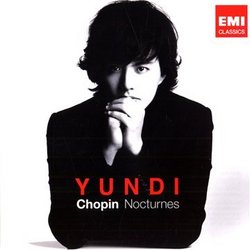 | Yundi Chopin: Nocturnes Genre: Classical
"Yundi, the brilliant young Chinese pianist ... has proved a technically astounding pianist who is by turns elegant and rambunctious, coolly expressive and white hot." -- The New York Times In his EMI Classics debut releas... more » |
Larger Image |
CD DetailsSynopsis
Album Description "Yundi, the brilliant young Chinese pianist ... has proved a technically astounding pianist who is by turns elegant and rambunctious, coolly expressive and white hot." -- The New York Times In his EMI Classics debut release, 25 year-old Chinese pianist Yundi (formally known as Yundi Li) releases the complete Chopin Nocturnes to commemorate the composer's 200th birthday in 2010. Yundi has devoted most his career almost exclusively to Chopin. Yundi was born in Chongquing, People's Republic of China in 1982. His musical career began with the accordion at the age of four and in 1987 he won first prize at the Chongqing Children's Accordion Competition. At the age of seven he took up the piano and began studies with Dan Zhao Yi, one of China's most renowned piano teachers; he already had ambitions of becoming a professional pianist. At just eighteen, Yundi became one of the youngest pianists to win the first prize at the 14th International Frédéric Chopin Competition held in Warsaw in 2000. Since the competition Yundi has catapulted onto the international stage. His recitals and appearances with orchestras in Europe, Asia and the United States have been hailed by critics extolling his precise, crystalline technique, keyboard fluidity and boundless enthusiasm. His personality and ar tistry appeal to audiences of all ages and he is an icon in his native China, where he has inspired millions of young people, who refer to him as the "Prince of the Piano." Similarly Requested CDs
|
CD ReviewsYundi LI has the talent, but the crux is: has he the determi A. F. S. Mui | HK | 04/23/2010 (4 out of 5 stars) "After over two years' absence from the discography sector, Chinese piano star Yundi LI returns with a full set of Chopin's Nocturnes under the blessing of EMI. The recorded sound is EXCEEDINGLY good. The production team has made it absolutely clear that Mr. LI's new release will not be defiled. And Mr. LI himself has gritted his teeth, too. The touching and phrasing are all there, for sure. And Mr. LI, in his 28th year (NOT 25th), is maturing into a seasoned pianist technically and to a certain extent interpretively. Yet, I agree with Santa Fe here, Mr. LI has still to prove that he is an unique Chopin interpretor by just 'letting go' more. For the past three years or so, Mr. LI has treaded on the wrong pianistic path for himself by including Prokofiev's, Moussorgsky's and other warhorse compositions into his repertoire. He has made a critically disastrous performance of Tcchikovsky's No. 1 Concerto last year in Singapore. Having said that, Mr. LI's strength definitely does not lie in those pyrotechnic showpieces. As contrasted with Lang Lang, Yundi LI has more musical balance and sense of rhythm. These he can manipulate to good end, given the right repertoire. These Nocturnes show that LI is best at home in the classical and early romantic period repertoire. As yet, he has still to savour these works' shape and form in order to dwell deeper beyond the surface of them. What I for one would loath to see is a second EMI album from Yundi LI on technically demanding showpieces." Another outstanding recording by Yundi Kee | Asia | 06/04/2010 (5 out of 5 stars) "Yundi was most articulate and expressive in each of these Nocturnes as if he was trying to bring life to each of them by using suitable varying quickening and hesitations at various places and by his good control of volume. Yundi truly has his unique way of understanding as how Nocturnes should be played. When some reviewers here mentioned that Yundi Li had played these Nocturnes in a seemingly similar way, I can hardly agree with them. Their wrong impression could be due to the wrong perception as how Chopin's Nocturnes should be played. if you are used to Pires' overly dramatic playing of Chopin's Nocturnes, you may expect to hear the same excitement for each Nocturne from other pianists. Should Chopin's Nocturnes be normally played in this kind of overly excited way? I don't think so as each Nocturne is rich in sweet tuneful melodies which can best be brought out by playing them in the way they ought to be played, meaning they should be played melodically instead of trying to create too much dramatic effect unless there is a complete change of theme such as the stormy parts of Op. 15 No. 1 and Op.48 No.1. Otherwise, within the same musical idea, it is just not natural that one should suddenly get excited and became too emotional by playing with a sudden big contrast in volume as what Pires had often done. One needs to build up the tension so as to reach the excitement in a more convincing way. This is what Yundi Li was good at, while playing those tuneful melodies elegantly, when necessary, he may build up the tension that will lead you to some excitements in a more convincing way instead of abruptly changing his emotion unexpectedly like Pires had often done. Although Pires had played these Nocturnes with tasteful rubato, she often spoiled her warm and beautiful playing with overly dramatic interpretation. The recording sound of Yundi Li's Nocturnes is warmer as if they were produced in a concert hall. Although there was no mention that Yundi Li's Nocturnes were not recorded in a recording studio, I am not surprised that they may have been done outside a studio because he had his previous recording "Liszt piano concerto No. 1" also not done in a studio in order to achieve the sound effect resembles to the warmer sound produced in a concert hall so that listeners may get the feeling of a live performance. Even though it is not possible to do digital splicing for recording done outside a recording studio, the other equally talented Chinese violinist Mengla Huang also had his CD recorded this way - both had preferred a warmer sound effect. Some reviewers here had recommended Arrau and Nelson Freire. Arrau's rubato is good except that he had overdone it and as a result, he often interrupted his melody lines with too much dragging. A good piano teacher will not encourage his students to play with this kind of excessive rubato and exaggerated expression. Still, Arrau's playing is still enjoyable although his technique is rather weak. You may not want to place Nelson Freire in the same caliber as Rubinstein because of the way he felt about the music when he sometimes appeared to be slightly erratic, hurried and changing mood unexpectedly. Furthermore, Nelson Freire was not only rather poor in tonal shadings, technically, he was also not in good command sometimes. For example, while he could not end his trills in time for Op.9 No.2, his fast running notes at some places especially Op.9 No.3 were also uneven with some notes almost inaudible. His Op.48 No.1 was plain and not expressive if you compare him with Rubinstein and Yundi. In the middle of the same piece, his left hand broken chords and his right hand chords were also poorly coordinated if you compare him with the same artists. His Op. 37 No.2 was straightforward with little rubato. Nelson Freire is not such an inspiring artist as Rubinstein and Yundi. Among the Nocturnes played by Ivan Moravec, Daniel Barenboim, Pires, Claudio Arrau, Nelson freire, Fou T'song, Rubinstein and Yundi Li, those played by Rubinstein and Yundi Li are the most comfortable to listen to while Ivan Moravec's Nocturnes are the least acceptable due to his unacceptable phrasing and rubato exemplified by his varying quickening and hesitations being badly done. Rubinstein and Yundi Li often gave you the impression that with their extraordinary inborn ability to understand music language, they were able to totally immerse themselves into the music they were playing. Playing that came from their deep feelings were always soothing and will never sound hurried. But Rubinstein was often too dreamy and lingering over notes for far too long and as a result, some pieces had become fragmented with Op. 27 No.2 the most obvious - the serene melody of hypnotic beauty of this piece seemed to have been overlooked by Rubinstein. Nevertheless, you will love his dreamy way of playing Op. 55 No.1 especially towards the end of this piece. Rubinstein could also be rather straightforward at many places with Op 48 No.2 the most obvious when he was almost straightforward throughout the whole piece with very little rubato. Yundi Li is more balanced with exquisitely tasteful rubato and beautiful phrasing most suited for Chopin's Nocturnes besides being equipped with the best technique and richer tonal color. Op 48 No. 1 really caught my attention as it was strikingly well played by Yundi. While he began Op 48 No. 1 slowly and solemnly, for the stormy part of this piece, one is overcome by his prowess and strength in creating the stormy effect and by his superbly done rubato for the fast running octaves - this is where you are able to tell if a pianist is equipped with an adequate technique. You may like to pay attention to the interesting rhythm Yundi was able to bring out from his right hand at 3'15" for Op. 9 No.3. I haven't heard this from other pianists. While playing these Nocturnes with serenity and poetic sensitivity, when it came to the stormy parts of these Nocturnes, Yundi exploded with the most powerful playing in creating the dramatic effect required in Op 48 No.1 and some other Nocturnes. His playing should be closest to what Chopin had wanted his Nocturnes to be played." Another must-have... E. Bordon | Houston, Texas USA | 05/12/2010 (5 out of 5 stars) "There is no point discussing Yundi Li's flawless technique and 'Chopin style', because they are well known facts. And this is about the quality of this music, not his more or less maturity or ethnicity.
I wish he would use a slower tempo and take his time in some of these Nocturnes. I feel this all the time listening to Pollini (and to the extreme tempos of Argerich). I prefer the calmness of Rubinstein in the No.7 and of Kissin in the No.10, for example. But Li's artistry is such that in the faster playing he does not leave out any expressiveness. I find this especially true in the No.13, Op.48 No.1 I always preferred the slow, detailed interpretation by Edouard Hamlin. It took just a few times I listened to Li to make this my favorite. It sounds to me like a force of nature, and it justifies by itself having acquired this whole collection. I seems that Li retains all of his earlier fire, and he even masters better the use of tone, resonance of the piano. Not all the Nocturnes in this collection may be favorites, this is too subjective to earlier listening experiences. But if there has to be just one, this collection qualifies as a choice among the few best. There is uniqueness in these interpretations. Like the case of most of his CDs, I feel this one is also a must-have." |

 Track Listings (12) - Disc #1
Track Listings (12) - Disc #1